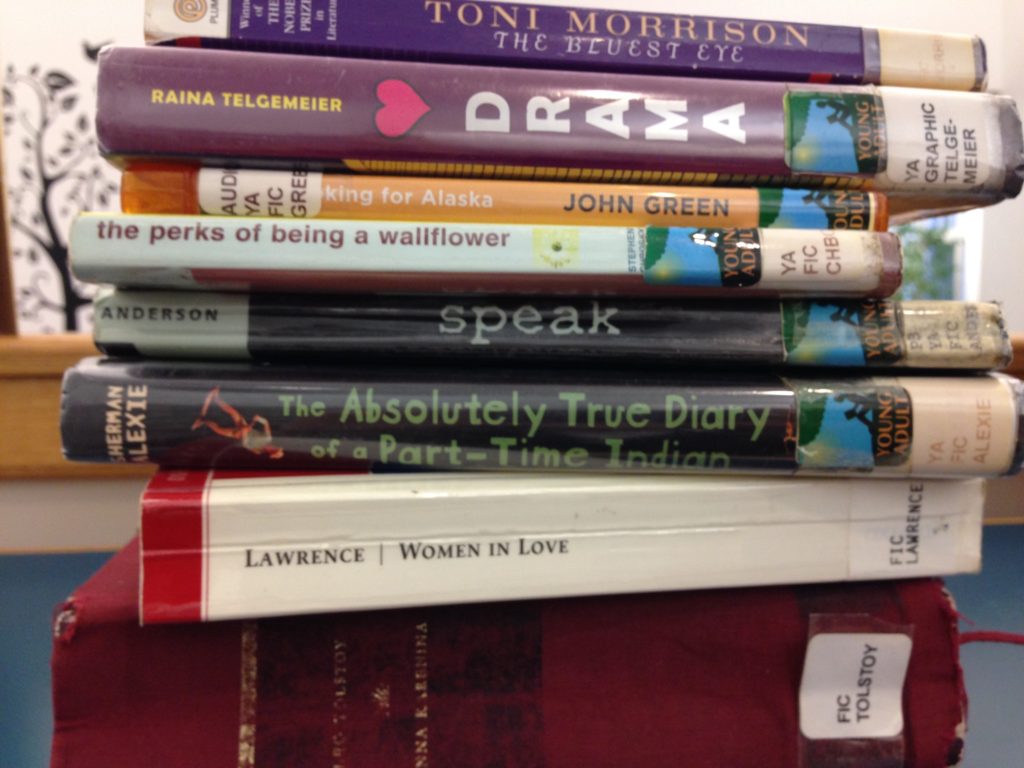
Is the stuff your kids read having an impact on their understanding of sex and relationships? Probably. Whether that’s a good thing or not so good may depend on the material—and whether you’ve given them context that helps them put their reading in perspective.
Some teens are big readers; others may rarely pick up a book. But many teens read something, whether it’s sci fi, romance novels, literary fiction, fan fiction, or graphic novels. Any of these can say or imply things about sexuality. Stories, even those that aren’t particularly about sex, can include information about sex (accurate or not), insights into relationships (and how they “should” be), sexual choices and consequences, power in relationships, views of sexual minorities, and expectations about gender roles.
Do you know what your kid is reading? It helps if you do—not so you can try to prevent reading certain things (a losing battle anyway), but so you can clarify any misconceptions and talk about implied messages and values.
Many “young adult” (teen) books address sex and dating in developmentally appropriate ways that get teens thinking. Literary fiction can provide thoughtful explorations of the complexities of sexuality and relationships, which is helpful to people of any age; it invites us to explore different perspectives and experiences. Popular genres like romance, science fiction, fantasy, mysteries, and graphic novels run the gamut from oversimplified stereotypes to real complexity about human interactions. If that’s what your kid is into, you might want to throw in the occasional reality check. (One young woman told me she thought for years that semen was blue because it was blue in a sci fi book she read.) Fan fiction is all over the map, some of it quite good, some super-raunchy.
Talk with your teen or preteen about what she’s been reading lately. Even if it’s not what you’d like her to be reading, stay curious. What does she like about it? What’s interesting about how it describes gender roles and relationships between partners? Which parts of it are pure fluff and which seem to say something about reality? Would she want to be a woman in the story’s world? a man? What assumptions does the writer make about romantic relationships? Does your kid agree with the writer?
You might also talk about things you’ve read over the years. What books did you find helpful, unhelpful, or plain wrong? What confused you? What did you figure out only years later? The things that puzzled you won’t be the same for your child, but talking about your confusion normalizes not-knowing, which makes it more likely that your kid might ask for clarification sometime.
Even better: Ask to read a book your kid thinks is particularly good. Anything he recommends is worthwhile, because you can learn so much about your child. If you like, ask for something that speaks to sex and dating. (“Things were different when I was your age, and I’d like to know more about what relationships are like these days. Can you suggest a book that talks about that?”)
Some kids will plunge into a discussion on these sorts of topics; most won’t. But every tidbit you learn, every thoughtful question you ask, every nonjudgmental observation you make shows sincere interest and helps you get to know your child better. Anything that keeps the door open for conversations about sexuality and dating is a good thing—and books can be part of that.